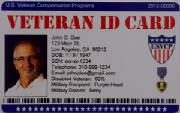|
|
|
|
Is it possible to receive the Hazlewood Act benefits and federal VA educational benefits concurrently?
Effective with tuition and fee payments for fall 2007, students may receive both benefits concurrently if the federal VA benefits do not equal or exceed the Hazlewood exemption value. If the federal VA benefits do no equal or exceed the Hazlewood exemption value, the student may receive a Hazlewood that equals the difference between the total tuition and fees (including student property deposit, student services, and all other fees) and the federal VA benefits. Students must provide copies of the official written notice (award letter) from the VA indicating the student’s monthly rate of payment, the inclusive date of payment, and they remaining entitlement at the end of the award period.
Types of courses covered
Does the Hazlewood Act cover teacher certification fees?
No. The teacher certification fee is not an institutional fee. It is a fee required by the State Board for Educator Certification and is paid directly to that board.
Does the Hazlewood Act cover credit by examination?
Yes. Since Texas Education Code 54.203 (a) refers to an exemption from “all dues, fees and charges…” the exemption would include charges for credit by examination.
Will Hazlewood Act benefits pay for continuing education classes?
Institutions are NOT required to offer Hazlewood Act benefits to veterans enrolled in continuing education classes for which the college or university receives no formula funding (tax support). However, the college or university may choose to permit this option.
Can Hazlewood Act benefits be used for graduate school?
Yes. Hazlewood Act benefits may be used for graduate studies, including law school or any other program of study public institutions (other than continuing education) if the veteran has not accumulated 150 credit hours using Hazlewood Act benefits since fall of 1995.
Can veterans who are concurrently enrolled in more than one college or university (in the same semester) receive Hazlewood Act benefits for both schools?
Yes. But each college/university granting Hazlewood Act benefits must document the veteran’s eligibility and must observe the 150-hour limit.
Can the Hazlewood exemption be used to pay for courses taken via distance education (correspondence, web-based, ITV, etc.)?
There is nothing in the Hazlewood statute that limits the means by which a course is being taught, although correspondence courses can ONLY be covered by the Hazlewood benefit if the course applies to the veterans’ degree plan. An otherwise eligible student living in Texas who takes a distance education course from a Texas public institution of higher education could use the Hazlewood exemption. A student taking a class through distance education and living in another state generally cannot meet the program’s residency requirement. The Hazlewood benefit requires students to be Texas residents at the time they use the program. However, an otherwise eligible person who is temporarily out of state but still classified by the institution as a resident could use the exemption for distance education courses.
Are aircraft training courses covered by the Hazlewood Act?
Yes, but each school must decide the extent to which this is true. The governing board of a junior or community college may establish a fee or extraordinary costs associated with a specific course or program such as flight training, diesel mechanics or other classes in which fees are higher than that of a normal class.
Recording Information
What information will be made available upon signing the release form?
All students using the Hazlewood Act benefit are required to sign a release form which allows the Texas Higher Education Coordinating Board, along with any institution the veteran may attend, access to the number of credit hours attempted in the current and previous years.
How will the Hazlewood credit hours attempted be tracked and recorded?
The governing board of each institution shall report to the Texas Higher Education Coordinating Board information relating to each individual receiving an exemption from fees and charges through the Hazlewood Act benefit.
See
your VSO for more details. |
|
|
|
|
[ Benefits News ]
|
|

